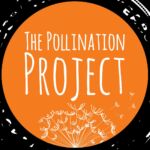It was almost exactly 5 years ago when we started. One $1000 grant a day to a good hearted person making positive change in their community or in the world. As the founding Executive Director, I really hadn’t planned for us to make the daily grants until we had a staff and a shred of infrastructure to run it all. But the applications were coming and media wanted to talk about us, so the day chose us– January 1, 2013– the day that The Pollination Project made our first daily grant. Now, 1826 days later, we haven’t stopped. In fact, we now make closer to 2 grants a day. We’ve given over $2.6million to 2500 grassroots social change projects in 110 countries around the world.
We’ve learned a lot in these five years. So many times we could have hit the easy button and just write a check to a different nonprofit every day and be done with it. We could have been one of the 64% of foundations that doesn’t accept applications- and instead we could have allowed our board and their friends to decide where the money goes. We could have acted like a bank- and just conducted financial transactions with our chosen grantees, and nothing more. We could have succumbed to the arrogance of money and power- buying into the myth that giving away money somehow makes you qualified to determine what kind of social change is the “best” or “most effective.”
Instead, we looked to use the process of giving away money as a way to transform the broken, bankrupt, oppressive systems, institutions and social structures that have created the problems we are trying to address in the first place. We set out to create a truly different kind of philanthropic venture.
There are three deeply-ingrained ideas woven into the fabric of the Pollination Project, and in the past five years, we have carefully and intentionally built teams and systems around them. I believe it is these ideas, and our commitment to them, that has created the heart and soul of the Pollination Project.
These ideas include:
1) The Jemez principles of justice organizing and moving power to the edges;
2) Creating conditions for emergence and wisdom to arise within a system vs. forcing it with over planning and control;
3) Uplifting forms of capital beyond money, which requires a soft focus on money and an organizational sufficiency mindset.
These three ideas can completely shift an entire system from transaction to transformation; a fixed mindset to one of growth; and from “solving” problems to transcending them. For the Pollination Project, these ideas have created a totally new way of relating to money, to power and to our global family.
Here are some examples:
First, virtually all of our grants are made by our grantees. Teams of grantees (nearly 100 people) from all over the world, who have direct experience working on relevant grassroots projects, are the ones reading the applications and making the assessments about what we should fund. Not disconnected board members or program officers. There is nothing more special than a grantee reaching out to learn more about an applicant’s work and offering peer to peer support.
In East Africa, where we were getting an influx of applications, we started seeing some natural leadership emerge from our grantee network. Over the course of two years, we worked with grantees across Kenya and Uganda to develop a culturally-relevant, strategic grant making program that allowed us to make our application process even more accessible, to make better grants, and to develop mutually supportive regional grantee communities across each country. By allowing ourselves to be led by our most trusted grantees, this program has not only made over 150 grants in the past three years, but the local, grantee-led teams have offered trainings, hosted open houses for grant applicants, conduct site visits, and coach and mentor projects.
Our grants are typically just $1000 each. That’s really not much when you are trying to grow and sustain a meaningful project. While the money is helpful, we take the emphasis off the money and onto the capital. When our teams review grant applications, they look for projects that already have other valuable forms of capital at the table- human capital such as volunteers; community capital like a donated venue to host events; a place to grow vegetables (natural capital). We add some money to the mix, but we also add lots of publicity and acknowledgement, training, networking and ongoing support, which many grantees have said is even more valuable than the financial capital.
While our budget has tripled since our founder had the idea to give away $1000 a day every day; so far our fundraising efforts have been minimal. Every dollar we raise goes to grantees and their projects, and we have had the honor of working with a range of foundations and donors who have created targeted small grant making efforts using our global funding platform.
In 2018, we enter our sixth year of grant making, it is a given that there will be more growth for the Pollination Project. However, the real challenge of our work is less about growth for the sake of growth, as is the norm within most corporate structures worldwide. Our challenge is to continually make room for the collective wisdom of our global family to lead the way. And to continually allow for that collective wisdom to ripen and expand over time.
In 2018, may we continue to be humble enough to listen, patient enough to allow for long term growth from the inside-out, and disciplined enough to stay away from the easy button.


